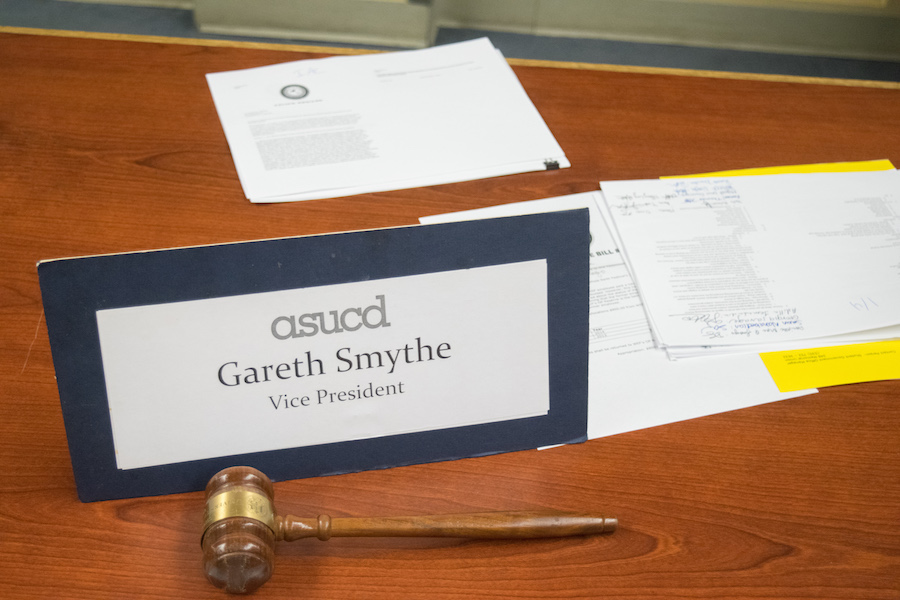
Resolution urges UC Board of Regents to divest from private prisons, private prison-investing corporations
In late February, ASUCD passed Senate Resolution #14 (SR# 14), a private prison divestment resolution which urged the University of California Board of Regents (UC Regents) to take social accountability for their involvement in for-profit prisons.
The resolution urged the UC Regents to divest from private prison-investing corporations such as Wells Fargo, to remove themselves from other unethical businesses and to refrain from partaking in corporations that are directly or indirectly involved in the private prison enterprise in the future.
Demands include, but are not limited to, an ASUCD evaluation on all companies where future investments will be made, UC Davis and UC Regents to implement a Socially Responsible Investment screening policy and an emphasis to invest in companies that maintain ethical and fair products and services.
University of California recently sold approximately $30 million of its $100 billion investment portfolio after a meeting with the Afrikan Black Coalition on the coalition’s concerns with UC investments in private prisons.
“After that meeting, we evaluated those holdings […] based on risk over the next several years. These holdings were not a good investment for a long-term investor such as UC […] and decided to sell,” said Dianne Klein, director of media engagement and strategy for the University of California Office of the President (UCOP) in an email interview. “Many factors figure into this perspective, such as whether social, governance, or environmental issues make the asset too risky over the long term.”
Joshua Dalavai, an ASUCD senator and co-author of the private prison divestment resolution, critiques UCOP on its business explanation rather than the moral reason for divesting.
“The chief investment officer or equivalent of that position in the UC said that the reason they divested wasn’t because of student pressures or the Black coalition or unethical investment practices, but rather because it was an unsustainable business model,” Dalavai said. “They still haven’t acknowledged the inherent racism of private prisons.”
According to Dalavai, private prisons disproportionately affect the Black community through their ongoing and vast implementation of a biased Black imprisonment rate. He argues that crimes made by ethnic non-Black counterparts committed in equal rates are subjected to far less imprisonment.
Dalavai explains his reason for committing to the ASUCD private prison divestment resolution as a call to action for the marginalized Black community.
“As a person of color, I thought it was extremely important because you have to show intersectionality and solidarity with other oppressed groups and the most historically oppressed group have been the Black people of this country,” Dalavai said.
According to supporters, the private prison divestment resolution pushes the Black Movement forward and keeps Black rights a relevant issue.
“This resolution is statistically important because on a lower level or grass roots level it keeps the movement going and […] does keep the conversation going,” said Eyonna Woghiren, vice president of UC Davis’ Black Student Association. “The resolution is another way to keep people accountable for what they are going to say and do.”
Woghiren cited that the recent trend in UC schools, like UCLA and UC Santa Barbara, authoring private prison divestment resolutions is due to the current prevalence of Black lives movements in popular media.
“I think that a lot of people have been working on these issues for a long time and given that the Black Lives Matter Movement and a lot of different movements for Black lives are coming out, it’s being noticed,” Woghiren said.
For Woghiren, the ASUCD private prison divestment resolution is a move in the right direction, but she still believes there is more work needed to be done.
“I think that it’s a great step and I think that the UC is a leader in the world and in a lot of movements in that it pushes other people to divest as well,” Woghiren said. “But I definitely still believe that we have a lot of work to do.”
Written by: Yvonne Leong – campus@theaggie.org



